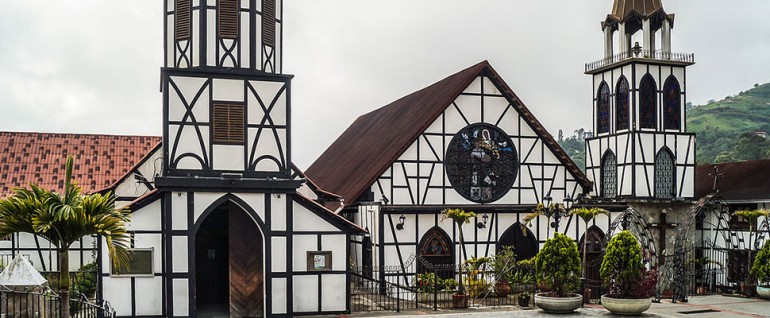Sponsored Listings:
Just 60 kilometers from Caracas and 2,000 meters above sea level is an enclave that is more reminiscent of the historic center of any German city than its tropical surroundings. This is Colonia Tovar, a community of about 15,000 inhabitants that was born in 1843 when Venezuela promoted the arrival of European immigrants with agricultural tradition and wanting to work the land outside their homeland. This was how 400 settlers from the Duchy of Baden were transferred to Venezuela after the efforts of the Italian engineer and geographer Agustín Codazzi, who had the support and guidance of the German scientist Alexander Von Humboldt.
The enclave, stopped in time, maintains the Central European traditions in its liturgical acts and festivities, among which the Oktoberfest stands out. Its cathedral (Cultural Patrimony of the Nation), its residences, and hotels are all of Gothic inspiration. Many of its inhabitants are still wearing the clothes of the time, which gives Colonia Tovar a very authentic look.
This place seems alien to the harsh situation that Venezuela is going through, in which the shortage and the long lines to buy the most basic foods are the daily situation. Here you can taste craft beers, all kinds of sausages, as well as chocolates, jams, and mustards. All these delicacies, exposed in outdoor markets, are very popular among the many tourists who come to visit Colonia Tovar.
The language is also another identity of these settlers, because in addition to Spanish speak the so-called “colonist German”, a variant of this language of the Kaisersthul area, bordering France, which is only used in this enclave.
Colonia Tovar lives mainly from tourism and the cultivation of strawberries, vegetables, and other products of the land. For many people from Caracas, visiting this site has become a habitual plan that makes them forget, for a few hours, the sad reality of their country. It is also a place desired by companies that hold corporate events or couples in love in search of a romantic evening.
These immigrants were the first foreign settlers who arrived in Venezuela after independence, opening the door to millions of immigrants who for more than a century arrived in the Caribbean country attracted by the economic boom of oil and turned this nation into one of the richest and most multicultural of the continent.
This type of colonies are relatively numerous in Latin America and can be found in countries such as Argentina, Chile, Brazil, or Paraguay. In the mid-twentieth century, some Nazis who tried to flee from European justice tried to find refuge in these sites, because they could go unnoticed to be closed communities without much relationship with the local population.
Source: latinamericanpost.com










